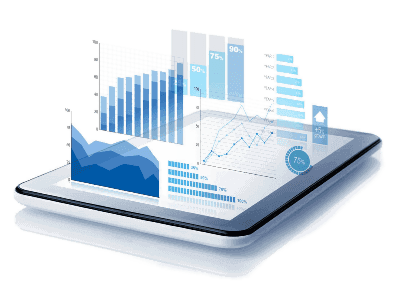 In the pursuit of academic excellence, the completion of a thesis stands as a significant milestone for students and researchers alike. The process of crafting a thesis demands dedication, meticulous research, and comprehensive data analysis. However, this crucial phase can often become daunting, especially when dealing with large datasets and complex statistical methodologies. In such moments, seeking help to analyze thesis data and utilizing effective data analysis tools can make all the difference. At Thesis-Dissertation Writing Services, we understand the challenges that scholars face during the data analysis phase of their thesis. Our mission is to provide unparalleled support and assistance, helping students navigate the intricacies of data analysis with ease and precision. We take pride in offering data analysis solutions that are not only reliable but also tailored to the unique requirements of each thesis project. Our team comprises experienced data analysts with extensive experience in various academic fields. They possess the expertise to handle diverse datasets and employ the most suitable analytical methods for extracting meaningful insights. Additionally, we leverage the power of state-of-the-art data analysis tools and software to ensure accurate and efficient processing of data. From statistical packages to data visualization tools, we have it all to make your analysis robust and compelling. We understand that each thesis project is distinct. Thus, our approach revolves around tailoring the data analysis process to align with your specific research objectives and hypotheses. As a reliable help provider, we recognize the value of time in academia. Our commitment to delivering results promptly enables you to meet your thesis submission deadlines without compromising on quality. Our data analyzing services come with a comprehensive and proficient solution designed to alleviate the stress and complexity of data analysis for your research work.
In the pursuit of academic excellence, the completion of a thesis stands as a significant milestone for students and researchers alike. The process of crafting a thesis demands dedication, meticulous research, and comprehensive data analysis. However, this crucial phase can often become daunting, especially when dealing with large datasets and complex statistical methodologies. In such moments, seeking help to analyze thesis data and utilizing effective data analysis tools can make all the difference. At Thesis-Dissertation Writing Services, we understand the challenges that scholars face during the data analysis phase of their thesis. Our mission is to provide unparalleled support and assistance, helping students navigate the intricacies of data analysis with ease and precision. We take pride in offering data analysis solutions that are not only reliable but also tailored to the unique requirements of each thesis project. Our team comprises experienced data analysts with extensive experience in various academic fields. They possess the expertise to handle diverse datasets and employ the most suitable analytical methods for extracting meaningful insights. Additionally, we leverage the power of state-of-the-art data analysis tools and software to ensure accurate and efficient processing of data. From statistical packages to data visualization tools, we have it all to make your analysis robust and compelling. We understand that each thesis project is distinct. Thus, our approach revolves around tailoring the data analysis process to align with your specific research objectives and hypotheses. As a reliable help provider, we recognize the value of time in academia. Our commitment to delivering results promptly enables you to meet your thesis submission deadlines without compromising on quality. Our data analyzing services come with a comprehensive and proficient solution designed to alleviate the stress and complexity of data analysis for your research work.
What tools are best for analyzing data in a thesis?
When it comes to data analysis for a thesis, choosing the right tools is crucial for accuracy and efficiency. This is where we offer expert thesis data analysis help to help you understand the best tools commonly used for the process:
- Statistical Software: Statistical software such as SPSS, SAS, R, and Stata are popular choices for analyzing quantitative data. They offer a wide range of statistical tests, data visualization options, and the ability to handle large datasets.
- Excel: Microsoft Excel is a versatile tool for basic data analysis, especially for smaller datasets. It offers functionalities like sorting, filtering, pivot tables, and basic statistical functions.
- NVivo: NVivo is excellent for qualitative data analysis, helping researchers organize, categorize, and analyze unstructured data, such as interviews, surveys, and open-ended responses.
- Python: Python, with libraries like NumPy, Pandas, and Matplotlib, is a powerful option for researchers comfortable with programming. It offers flexibility and customization in data analysis processes.
- Atlas.ti: Another qualitative data analysis tool, Atlas.ti, aids in uncovering patterns, themes, and relationships within textual data.
A Practical Approach to Successful Data Analysis in Your Thesis:
Effective data analysis requires a systematic and well-structured approach. Here's a practical step-by-step guide to conducting data analysis for your thesis:
- Begin by cleaning and preprocessing your data to eliminate errors, inconsistencies, and missing values.
- Clearly outline the research questions or hypotheses that you aim to address through data analysis.
- Select the appropriate statistical or qualitative analysis method based on your research questions and the type of data you have collected.
- Utilize data visualization techniques such as graphs, charts, and plots to present your findings effectively.
- Interpret the results of your analysis in the context of your research questions and relevant literature.
- Draw well-supported conclusions based on your analysis results.
- In the discussion section, relate your data analysis findings to the existing body of knowledge.
Empower Your Thesis Data Analysis Skills with Our Help:
Developing strong data analysis skills can significantly enhance the quality and impact of your thesis. Here's how our assistance can empower your research:
- We Offer Expert Guidance: Our team of experienced researchers and data analysts can provide personalized guidance throughout your data analysis process. From selecting the right tools to interpreting results, we offer comprehensive support.
- We Offer Hands-on Training: We offer training sessions and workshops on data analysis tools and techniques, ensuring that you gain proficiency in using the chosen software effectively.
- We Provide Customized Solutions: Our assistance is tailored to your specific research needs. Whether you require quantitative or qualitative analysis, we can adapt our services accordingly.
- Our Quality Assurance: With our support, you can be confident that your data analysis is accurate, reliable, and aligns with the best practices in your field of study.
Data analysis is a critical aspect of any thesis, providing the necessary evidence to support your research findings. Empower your research with our help, and your project will stand out as a valuable contribution to the academic community.
How to Analyze Thesis Data | Data Analysis Process for Thesis
 As the culmination of rigorous research and academic endeavor, a thesis represents the pinnacle of a student's educational journey. After investing countless hours in data collection and experimentation, the next crucial step is to analyze the gathered data effectively. The process of analyzing thesis data is not only an indispensable aspect of completing one's research but also a gateway to drawing meaningful conclusions and contributing to the existing body of knowledge in the chosen field. That’s why it’s important to understand the best thesis data analysis approach. Since we understand the significance of a well-analyzed thesis, we aim to shed light on why entrusting your data analysis to us ensures the best possible outcomes. Our team comprises skilled data analysts and statisticians with extensive experience in handling diverse research projects across various domains. With a profound understanding of statistical tools and methodologies, we can navigate complex data sets efficiently. Recognizing the unique requirements of your thesis, our analysis process is customized to align with the specific objectives and research questions you seek to address. We take into account the nature of your data, whether qualitative or quantitative, to adopt the most appropriate analytical techniques. Needless to say, precision in data analysis is paramount, and we prioritize delivering accurate results to support the validity of your thesis. Our systematic approach mitigates any potential errors and ensures the reliability of the findings. Beyond mere data crunching, our analysts possess the capability to interpret the results of your analysis coherently.
As the culmination of rigorous research and academic endeavor, a thesis represents the pinnacle of a student's educational journey. After investing countless hours in data collection and experimentation, the next crucial step is to analyze the gathered data effectively. The process of analyzing thesis data is not only an indispensable aspect of completing one's research but also a gateway to drawing meaningful conclusions and contributing to the existing body of knowledge in the chosen field. That’s why it’s important to understand the best thesis data analysis approach. Since we understand the significance of a well-analyzed thesis, we aim to shed light on why entrusting your data analysis to us ensures the best possible outcomes. Our team comprises skilled data analysts and statisticians with extensive experience in handling diverse research projects across various domains. With a profound understanding of statistical tools and methodologies, we can navigate complex data sets efficiently. Recognizing the unique requirements of your thesis, our analysis process is customized to align with the specific objectives and research questions you seek to address. We take into account the nature of your data, whether qualitative or quantitative, to adopt the most appropriate analytical techniques. Needless to say, precision in data analysis is paramount, and we prioritize delivering accurate results to support the validity of your thesis. Our systematic approach mitigates any potential errors and ensures the reliability of the findings. Beyond mere data crunching, our analysts possess the capability to interpret the results of your analysis coherently.
A roadmap of how to analyze thesis data from Excel to statistics
The process entails;
- Data Importation and Preparation in Excel: Begin by importing your raw data into Excel and organizing it into appropriate columns and rows. Check for inconsistencies, missing values, and potential data entry errors.
- Exploratory Data Analysis Activity (EDA): Perform EDA to understand the basic characteristics of your data. Calculate measures of central tendency, dispersion, and visualize data through histograms, scatter plots, and box plots.
- Hypothesis Testing: If your research involves hypothesis testing, select the appropriate statistical tests such as t-tests, chi-square tests, ANOVA, or regression analysis. Ensure that the assumptions of the chosen tests are met.
- Statistical Software Utilization: For complex analyses, consider using specialized statistical software such as SPSS, R, or STATA. These tools offer a wide range of statistical methods and can handle large datasets efficiently.
- Application of Advanced Statistical Techniques: Depending on the complexity of your research, you might need to use advanced statistical techniques such as factor analysis, cluster analysis, or structural equation modeling (SEM).
- Ensuring Data Privacy and Ethics: Respect data privacy and adhere to ethical guidelines when analyzing data, especially if the data involves sensitive information about individuals or organizations.
The best thesis data analysis plan you can utilize
Follow the following process and analyze your data effectively;
- Define Your Research Questions and Objectives: Before diving into data analysis, it is essential to clearly define your research questions and objectives. This will help you focus on relevant data and avoid unnecessary analysis.
- Choose the Right Data Collection Method: Select a data collection method that aligns with your research objectives. Common data collection methods include surveys, experiments, interviews, and observations.
- Organize and Clean Your Data: Ensure your data is well-organized and free from errors. Use spreadsheet tools like Microsoft Excel to arrange the data systematically and identify and rectify any missing or erroneous entries.
- Preprocessing Your Data: Preprocess your data to make it suitable for analysis. This step involves data transformation, normalization, and dealing with outliers, if any.
- Select Appropriate Analysis Techniques: Based on your research questions, choose suitable analysis techniques. Common data analysis techniques include descriptive statistics, inferential statistics, regression analysis, and content analysis for qualitative data.
- Visualize Your Data: Visual representations, such as graphs, charts, and plots, can provide valuable insights and make complex data more understandable. Utilize data visualization tools to present your findings effectively.
- Interpret Your Results: Thoroughly interpret the results of your data analysis in the context of your research questions. Avoid concluding unsupported by the data and be cautious of any limitations in the analysis.
Effective data analysis is the backbone of a successful thesis, providing meaningful insights and validating research hypotheses. From Excel to advanced statistical tools, the journey of thesis data analysis requires meticulous planning, attention to detail, and ethical considerations to produce valuable contributions to the academic community.




 We guarantee you the
We guarantee you the 